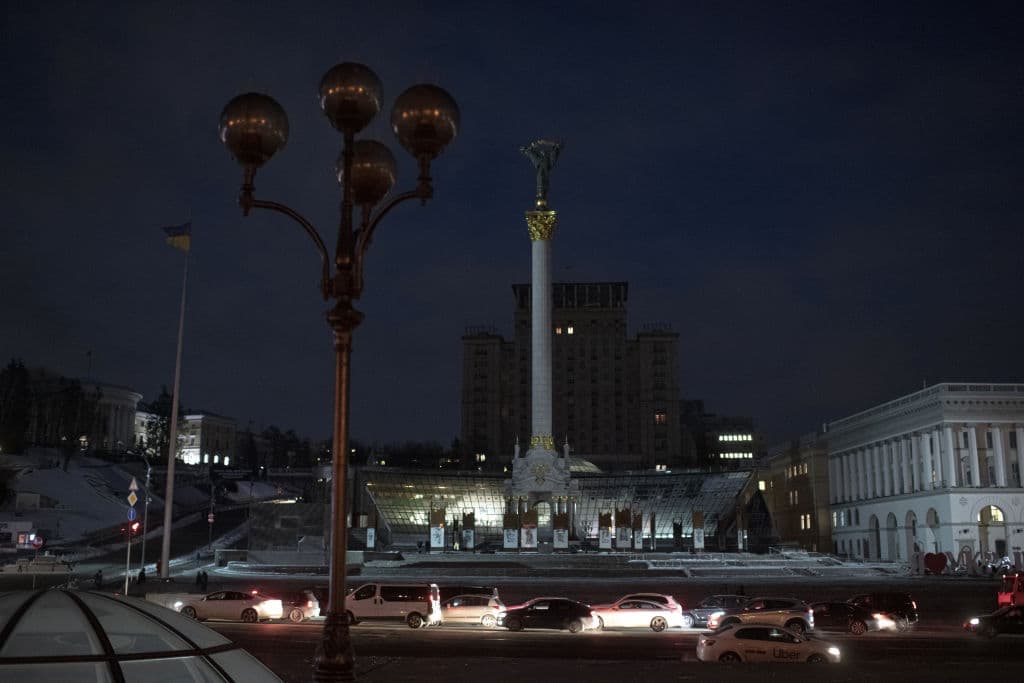Ukraine war latest: Power deficit still ‘significant’ after Russia launches ‘more than 1,000 missiles and drones’ at Ukrainian energy since October

Key developments on Dec. 9
- Ukrenergo: Russia fired more than 1,000 missiles and drones at Ukrainian energy
- Erdogan announces new talks with Zelensky, Putin
- Putin claims Russia should have started its full-scale war ‘earlier’
- General Staff: Russia still set on capturing Bakhmut
Russia has fired more than 1,000 missiles and drones at Ukrainian energy infrastructure since Oct. 10, the head of Ukraine's state grid operator Ukrenergo Volodymyr Kudrytskyi said.
While air defense shot down most incoming missiles and drones, some hit their intended targets. Ukrainian energy systems face an immense challenge to keep working amidst Russia's bomb threats.
"We have survived eight big waves (of missile strikes) and over a dozen smaller ones," Kudrytskyi said at a press briefing in Kyiv on Dec. 9.
As the weather in Ukraine drops below freezing point, Kudrytskyi added that almost all of the country's thermal power plants had suffered damage from Russia's attacks. Moscow has named Ukraine's energy infrastructure among its key military targets.
Russia will continue to attack
On Dec. 9, Ukrenergo said in a Facebook post that the power situation remains "difficult" and the energy deficit is still "significant." Some regions were forced to roll emergency blackouts following Russia's most recent mass attack on Dec. 5.
At the same briefing, Kudrytskyi said that Ukraine would likely face a deficit throughout winter even though it is gradually resuming the work of damaged power plants.
Ukrenergo's assessment comes a day after Russian President Vladimir Putin claimed that Russia would continue launching mass strikes on Ukrainian energy sites.
Putin added on Dec. 9 that "maybe Russia should have started" its full-scale invasion of Ukraine "earlier" and blamed the Minsk agreements for the "late" start.
The Minsk Accords were a series of ceasefire agreements that sought to end Russia’s war against Ukraine in the years-long eastern Donbas region.
Ukraine and its Western allies have condemned "terror" attacks that indiscriminately killed dozens of civilians and left cities without electricity, mobile connection, water, and heating.
Speaking at a press conference in Kyrgyzstan, Putin claimed that ultimately "an agreement will have to be reached" to end Russia's war against Ukraine, signaling that the Kremlin thinks it can still win the war.
Erdogan’s diplomacy
Turkey's President Recep Tayyip Erdogan said he was due to speak with Putin on Dec. 11 regarding the Black Sea "grain corridor," Turkish state-run news agency Anadolu reported.
Without specifying the date, Erdogan added that a separate conversation with President Volodymyr Zelensky is also planned.
"Grain corridor" refers to the Turkish and UN-brokered deal signed in July to resume Ukrainian grain exports from blockaded Black Sea ports. Walking a fine line between Kyiv and Moscow, Erdogan has sent the world mixed signals about his intentions.
Since early in the full-scale invasion, Erdogan has positioned himself as a key mediator between Kyiv and Moscow.
Previously, Erdogan spoke with Putin and Zelensky on Nov. 18.
Bakhmut onslaught
On the battlefield, Russian troops are still focused on conducting an offensive in Bakhmut, Donetsk Oblast, Ukraine's General Staff said in its evening briefing.
Zelensky said in an evening address that Russian troops "effectively destroyed" Bakhmut, now another city in Ukraine's east "turned into scorched ruins."
The Institute for the Study of War (ISW), a U.S. defense think-tank, said on Nov. 30 that "the costs associated with six months of brutal, grinding, and attrition-based combat around Bakhmut far outweigh any operational advantage that the Russians can obtain from taking Bakhmut."









